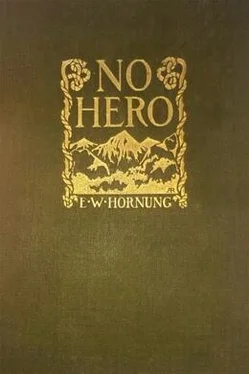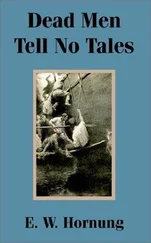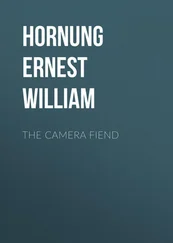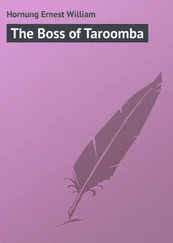E. Hornung - No Hero
Здесь есть возможность читать онлайн «E. Hornung - No Hero» весь текст электронной книги совершенно бесплатно (целиком полную версию без сокращений). В некоторых случаях можно слушать аудио, скачать через торрент в формате fb2 и присутствует краткое содержание. Год выпуска: 2017, Издательство: epubBooks Classics, Жанр: Классический детектив, на английском языке. Описание произведения, (предисловие) а так же отзывы посетителей доступны на портале библиотеки ЛибКат.
- Название:No Hero
- Автор:
- Издательство:epubBooks Classics
- Жанр:
- Год:2017
- ISBN:нет данных
- Рейтинг книги:5 / 5. Голосов: 1
-
Избранное:Добавить в избранное
- Отзывы:
-
Ваша оценка:
- 100
- 1
- 2
- 3
- 4
- 5
No Hero: краткое содержание, описание и аннотация
Предлагаем к чтению аннотацию, описание, краткое содержание или предисловие (зависит от того, что написал сам автор книги «No Hero»). Если вы не нашли необходимую информацию о книге — напишите в комментариях, мы постараемся отыскать её.
.’
No Hero — читать онлайн бесплатно полную книгу (весь текст) целиком
Ниже представлен текст книги, разбитый по страницам. Система сохранения места последней прочитанной страницы, позволяет с удобством читать онлайн бесплатно книгу «No Hero», без необходимости каждый раз заново искать на чём Вы остановились. Поставьте закладку, и сможете в любой момент перейти на страницу, на которой закончили чтение.
Интервал:
Закладка:
"I'm glad you carry the outward signs," said he, "for I made the most of your wounds and you really owe your room to them. You see, we're a very representative crowd. That festive old boy, strutting up and down with his cigar, in the Panama hat, is really best known in the black cap: it's old Sankey, the hanging judge. The big man with his back turned you will know in a moment when he looks this way: it's our celebrated friend Belgrave Teale. He comes down in one or other of his parts every day: to–day it's the genial squire, yesterday it was the haw–haw officer of the Crimean school. But a real live officer from the Front we don't happen to have had, much less a wounded one, and you limp straight into the breach."
I should have resented these pleasantries from an ordinary stranger, but this libertine might be held to have earned his charter, and moreover I had further use for him. We were loitering on the steps between the glass veranda and the terrace at the back of the hotel. The little sunlit stage was full of vivid, trivial, transitory life, it seemed as a foil to the vast eternal scene. The hanging judge still strutted with his cigar, peering jocosely from under the broad brim of his Panama; the great actor still posed aloof, the human Matterhorn of the group. I descried no showy woman with a tall youth dancing attendance; among the brick–red English faces there was not one that bore the least resemblance to the latest photograph of Bob Evers.
A little consideration suggested my first move.
"I think I saw a visitors' book in the hall," I said. "I may as well stick down my name."
But before doing so I ran my eye up and down the pages inscribed by those who had arrived that month.
"See anybody you know?" inquired Quinby, who hovered obligingly at my elbow. It was really necessary to be as disingenuous as possible, more especially with a person whose own conversation was evidently quite unguarded.
"Yes, by Jove I do! Robin Evers, of all people!"
"Do you know him?"
The question came pretty quickly. I was sorry I had said so much.
"Well, I once knew a small boy of that name; but then they are not a small clan."
"His mother's the Honourable," said Quinby, with studious unconcern, yet I fancied with increased interest in me.
"I used to see something of them both," I deliberately admitted, "when the lad was little. How has he turned out?"
Quinby gave his peculiar nasal laugh.
"A nice youth," said he. "A very nice youth!"
"Do you mean nice or nasty?" I asked, inclined to bridle at his tone.
"Oh, anything but nasty," said Quinby. "Only—well—perhaps a bit rapid for his years!"
I stooped and put my name in the book before making any further remark. Then I handed Quinby my cigarette–case, and we sat down on the nearest lounge.
"Rapid, is he?" said I. "That's quite interesting. And how does it take him?"
"Oh, not in any way that's discreditable; but as a matter of fact, there's a gay young widow here, and they're fairly going it!"
I lit my cigarette with a certain unexpected sense of downright satisfaction. So there was something in it after all. It had seemed such a fool's errand in the train.
"A young widow," I repeated, emphasising one of Quinby's epithets and ignoring the other.
"I mean, of course, she's a good deal older than Evers."
"And her name?"
"A Mrs. Lascelles."
I nodded.
"Do you happen to know anything about her, Captain Clephane?"
"I can't say I do."
"No more does anybody else," said Quinby, "except that she's an Indian widow of sorts."
"Indian!" I repeated with more interest.
Quinby looked at me.
"You've been out there yourself, perhaps?"
"It was there I knew Hamilton," said I, naming our common friend in the Engineers.
"Yet you're sure you never came across Mrs. Lascelles there?"
"India's a large place," I said, smiling as I shook my head.
"I wonder if Hamilton did," speculated Quinby aloud.
"And the Lascelleses," I added, "are another large clan."
"Well," he went on, after a moment's further cogitation, "there's nobody here can place this particular Mrs. Lascelles; but there are some who say things which they can tell you themselves. I'm not going to repeat them if you know anything about the boy. I only wish you knew him well enough to give him a friendly word of advice!"
"Is it so bad as all that?"
"My dear sir, I don't say there's anything bad about it," returned Quinby, who seemed to possess a pretty gift of suggestive negation. "But you may hear another opinion from other people, for you will find that the whole hotel is talking about it. No," he went on, watching my eyes, "it's no use looking for them at this time of day; they disappear from morning to night; if you want to see them you must take a stroll when everybody else is thinking of turning in. Then you may have better luck. But here are the letters at last."
The concierge had appeared, hugging an overflowing armful of postal matter. In another minute there was hardly standing room in the little hall. My companion uttered his unlovely laugh.
"And here comes the British lion roaring for his London papers! It isn't his letters he's so keen on, if you notice, Captain Clephane; it's his Daily Mail , with the latest cricket, and after that the war. Teale is an exception, of course. He has a stack of press–cuttings every day. You will see him gloating over them in a minute. Ah! the old judge has got his Sportsman ; he reads nothing else except the Sporting Times , and he's going back for the Leger. Do you see the man with the blue spectacles and the peeled nose? He was last Vice Chancellor but one at Cambridge. No, that's not a Bishop, it's an Archdeacon. All we want is a Cabinet Minister now; every evening there is a rumour that the Colonial Secretary is on his way, and most mornings you will hear that he has actually arrived under cloud of night."
The facetious Quinby did not confine his more or less caustic commentary to the well–known folk of whom there seemed no dearth; in the ten or twenty minutes that we sat together he further revealed himself as a copious gossip, with a wide net alike for the big fish and for the smallest fry. There was a sheepish gentleman with a twitching face, and a shaven cleric in close attendance; the former a rich brand plucked from burning by the latter, whose temporal reward was the present trip, so Quinby assured me during the time it took them to pass before our eyes through the now emptying hall. A delightfully boyish young American came inquiring waggishly for his "best girl"; next moment I was given to understand that he meant his bride, who was ten times too good for him, with further trivialities to which the dressing–bell put a timely period. There was no sign of my Etonian when I went upstairs.
As I dressed in my small low room, with its sloping ceiling of varnished wood, at the top of the house, I felt that after all I had learnt nothing really new respecting that disturbing young gentleman. Quinby had already proved himself such an arrant gossip as to discount every word that he had said before I placed him in his proper type: it is one which I have encountered elsewhere, that of the middle–aged bachelor who will and must talk, and he had confessed his celibacy almost in his first breath; but a more pronounced specimen of the type I am in no hurry to meet again. If, however, there was some comfort in the thought of his more than probable exaggerations, there was none at all in the knowledge that these would be, if they had not already been, poured into every tolerant ear in the place, if anything more freely than into mine.
I was somewhat late for dinner, but the scandalous couple were later still, and all the evening I saw nothing of them. That, however, was greatly due to this fellow Quinby, whose determined offices one could hardly disdain after once accepting favours from him. In the press after dinner I saw his ferret's face peering this way and that, a good head higher than any other, and the moment our eyes met he began elbowing his way toward me. Only an ingrate would have turned and fled; and for the next hour or two I suffered Quinby to exploit my wounds and me for a good deal more than our intrinsic value. To do the man justice, however, I had no fault to find with the very pleasant little circle into which he insisted on ushering me, at one end of the glazed veranda, and should have enjoyed my evening but for an inquisitive anxiety to get in touch with the unsuspecting pair. Meanwhile the lilt of a waltz had mingled with the click of billiard balls and the talking and laughing which make a summer's night vocal in that outpost of pleasure on the silent heights; and some of our party had gone off to dance. In the end I followed them, sticks and all; but there was no Bob Evers among the dancers, nor in the billiard–room, nor anywhere else indoors.
Читать дальшеИнтервал:
Закладка:
Похожие книги на «No Hero»
Представляем Вашему вниманию похожие книги на «No Hero» списком для выбора. Мы отобрали схожую по названию и смыслу литературу в надежде предоставить читателям больше вариантов отыскать новые, интересные, ещё непрочитанные произведения.
Обсуждение, отзывы о книге «No Hero» и просто собственные мнения читателей. Оставьте ваши комментарии, напишите, что Вы думаете о произведении, его смысле или главных героях. Укажите что конкретно понравилось, а что нет, и почему Вы так считаете.










